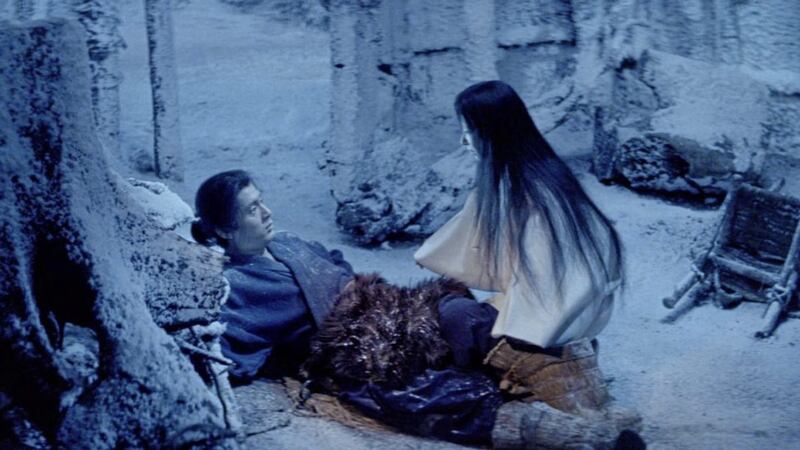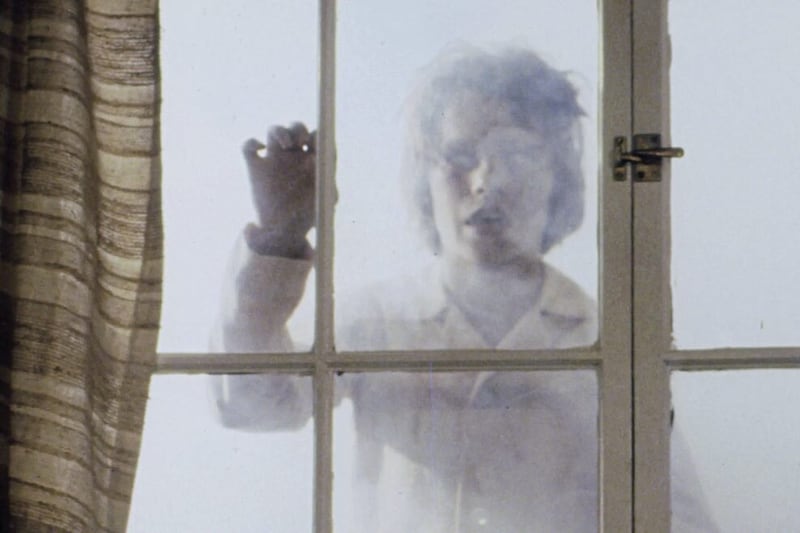Kwaidan
ONE of the most stylish, unsettling and downright odd ghost stories anthologies ever committed to film, Kwaidan is a masterpiece of Japanese film making.
Directed in 1964 by Masaki Kobayashi from Lafcadio Hearn's classic Japanese folk tales, it won the Special Jury Prize at Cannes the following year. Watching it unfold its cold and eerie wonder in a new 2K digital restoration from Eureka Entertainment, it's easy to see why.
Its title taken from an old Japanese expression for 'ghost stories', this is a singular example of the classic portmanteau horror film. Where a British company like Amicus films, for example, would have spun out fast and fun-filled little collections of pulpy horror from the pen of authors like Robert Bloch and peopled their cast with familiar faces like Peter Cushing and Christopher Lee, this is an altogether more esoteric experience.
Kobayashi gathers together four unrelated tall tales that all smack of pure nightmare and the mood shifts from epic to surreal with each new story. Low on traditional horror thrills, jumps and twists, these fables rely on weirdness and a dream-like logic for their impact.
A broke samurai marries for money rather than love and must pay the price for his greedy motivations, a traveller is stranded in a mighty blizzard but is rescued by Yuki the Snow Maiden, a blind musician must play a gig for a room full of ghosts and a writer tells a moral tale about a samurai who continually sees another warrior's face in the bottom of his tea cup.
Written out coldly, these tales promise little – but the director's eye for unforgettable imagery, feeling for lush colour photography and the use of beautiful hand-painted sets make this a unique film experience.
Toru Takemitsu, who composed the offbeat score and abstract sound design, must also take a lot of credit for the effectiveness of the finished film here. The jarring instrumentation and unsettling sound of the film adds hugely to the growing sense of dread it summons up over its lengthy 183 minute running time.
Inevitably, the issue of quality control which troubles so many anthology films rears its head at times here. While the opening segment The Black Hair still exerts a strange otherworldliness all of its own and Hoichi The Earless, the epic battle based centrepiece, contains some of the film's most striking and fairytale flavoured images, The Woman Of The Snow (appropriately enough) drifts rather aimlessly and the final piece In A Cup Of Tea comes across as pretentious and overblown in its aimlessness and ultimate inability to tie things up with any sort of clarity.
Yet, despite the unevenness, there's a sense of cinematic beauty here that is very special. What Kobayashi's Kwaidan may lack in visceral shocks it more than makes up for in mood, and the cumulative effect of the strangeness on show builds an atmosphere of supernatural oddness that's hard to imagine a western film maker ever mustering.
Allow yourself to be dragged in by its often extremely leisurely pace and a genuinely scary anthology awaits you.








